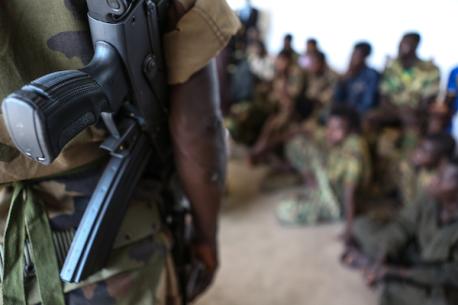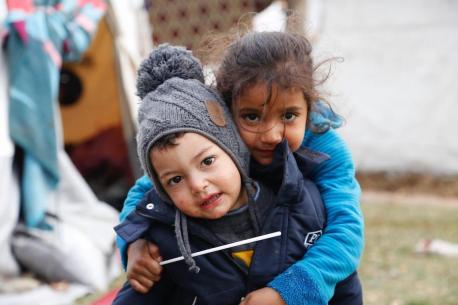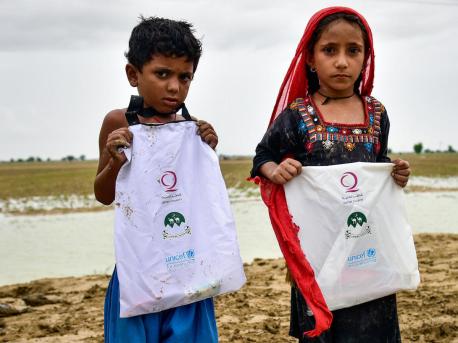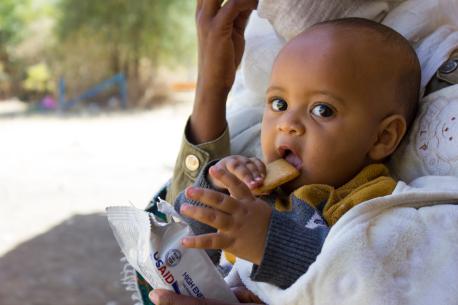
New Violence in Central African Republic Conflict
Renewed fighting in the Central African Republic has caused thousands of people, mainly women and children, to flee their homes in the northwestern section of the country. 30,000 have sought safety in Bossangoa, a provincial capital.
UNICEF is working closely with other U.N. agencies to provide emergency services, trucking in water and establishing an emergency health service at a Catholic mission in Bossangoa where 25,000 newly displaced people have gathered.
UNICEF is also providing health and nutrition supplies to Bossangoa’s hospital, including truckloads of emergency goods dispatched through the UNICEF-coordinated Rapid Response project.
To raise support for UNICEF's underfunded emergency effort, UNICEF Goodwill Ambassador Mia Farrow will visit the country next month.
The latest violence is the most recent setback in a disastrous nine months for 2.3 million children affected by ongoing conflict in the Central African Republic. The deeply impoverished country already has one of the world’s highest rates of child mortality, and the crisis has disrupted vaccination campaigns, interrupted malnutrition treatment programs, and made any health care more difficult to obtain. Measles outbreaks have occurred in nearly every region of the country.
The crisis’ impact extends to education and safety: Seven out of ten primary school children in the country have stopped going to classes, and nearly two thirds of all schools have been looted, damaged or occupied. Many children have been recruited as soldiers — UNICEF estimated there were already 2,000 children serving in armed groups before the crisis — and others have been raped or killed.
The conflict broke out in December 2012 when the armed coalition Seleka began its advance across the country. The Seleka took control of Bangui, the capital, in a March 24 coup.
UNICEF's recent efforts come on top of a countrywide, yearlong campaign to meet children's needs. UNICEF has supported emergency health activities in Bangui's four main hospitals and a national vaccination campaign (measles, polio, deworming, vitamin A) that began this month is targeting more than half a million children. Three quarters of the nutrition clinics that were shuttered by war have been reopened, allowing severe malnutrition to be diagnosed and treated.
UNICEF has also been re-supplying schools with furniture and learning materials and supporting catch-up programs that will allow 65,000 primary school students to take their final exams this November for last year's school year.
An emergency appeal for $11.5 million had been issued by UNICEF before the Seleka's takeover. Since then, funding needs have tripled to $31.9 million. A gap of about $20 million through the end of the year threatens UNICEF"s ability to continue delivering the emergency services children in the CAR urgently require.
Please support UNICEF's humanitarian efforts in the Central African Republic.
 © UNICEF/NYHQ2013-0240/JORDI MATAS A baby at a health post in Bangui's Bogbaya neighbourhood during a UNICEF-supported emergency measles vaccination campaign in May.
© UNICEF/NYHQ2013-0240/JORDI MATAS A baby at a health post in Bangui's Bogbaya neighbourhood during a UNICEF-supported emergency measles vaccination campaign in May.


